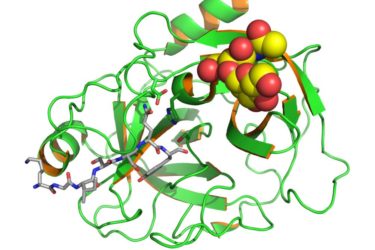Category: Clinical Trials
Mathematically modeling why quackery persists
It’s often puzzled me (and, I daresay, many other skeptics and boosters of science- and evidence-based medicine) why various forms of quackery and woo that have either about as close to zero prior probability as you can get and/or have failed to show evidence greater than placebo in clinical trials manage to retain so much traction among the public. Think homeopathy. Think...
Homeocracy
Recent comments on homeopathy again resulted in references to the 1994 Pediatrics paper by Jacobs et al on use of homeopathic remedies for childhood diarrhrea. The authors of that paper concluded from their blinded study that homeopathic remedies, tailored to the individual infants and children, were effective in reducing the number of diarrhea stools and thus in shortening the illness. The paper...

PSA – To Screen or Not to Screen
Is the prostate specific antigen (PSA) test worth taking? It's, like, really complicated.
Medical Propaganda Films
David Gorski suggested I expand on a comment I left recently on one of his November posts. His subject was the then new documentary movie, “A Beautiful Truth.“ “Truth” is about the Gerson method – the dietary deprivation cum coffee enema cancer treatment developed by Dr. Max Gerson, a refugeee from Germany I the 1930s. His daughter, Charlotte now runs the Gerson...
When fraud undermines science-based medicine
The overriding them, the raison d’être if you will, of this blog is science-based medicine. However, it goes beyond that in that we here at SBM believe that science- and evidence-based medicine is the best medicine. It’s more than the best medicine, though; it’s the best strategy for medicine to improve therapy for our patients. We frequently contrast science-based medicine with various...
Scientific Fraud Hits Home
Last week the story broke that Scott Reuben, an anesthesiologist and clinical researcher at Baystate Medical Center in Springfield, MA, had falsified data in at least 21 publications over a period of at least 12 years—making it one of the most enduring examples of scientific fraud in memory. Almost all of Reuben’s papers had reported innovative methods for providing post-operative pain relief...
A Medical-Skeptical Classic
The medical literature slowly becomes outdated. As a result there are not that many ‘classics’ in the field, since their content becomes less relevant. The medical aphorism is that 10 years after graduation from medical school, half of everything you learned will no longer be valid. The problem for medical students is trying to figure out which half of their curriculum is...
Fakin’ it
Last week the Times of London revealed inside information from the General Medical Council (UK, responsible for physician licensing) of an ongoing investigation of Dr. Andrew Wakefield and from its own investigation. This revelation recalled other instances of fakery from reports of sectarian medicine (“CAM”) successes. The Medical Council information contained evidence that the data from the now famous Wakefield cases used to...
Comparative Clinical Effectiveness Research: Good News In Shades Of Gray
When I first heard about the new emphasis on comparative clinical effectiveness research (CCER) in Obama’s economic stimulus bill I thought, “Thank goodness! Maybe now science will truly regain its rightful place and we’ll end the CAM, ‘me-too’ drug, and excessive-use-of-technology madness that is wasting so much money in healthcare.” In fact, I was so excited about the new administration’s apparent interest...
Another challenge to surgical dogma
Better late than never with this one. The dogma that I’m referring to is the remaining practice of using NG tubes in anyone with upper gastrointestinal surgery (liver, stomach, pancreas, duodenum, proximal small intestine) and then placing a jejunostomy tube (a tube, also often called a J-tube, that goes into the jejunum, or the proximal part of the small intestine, through which...

